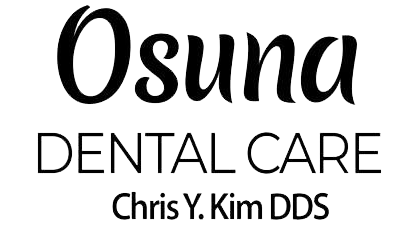The Truth About Root Canals: What You Need to Know Before Getting One
Posted by Osuna Dental Care May 27, 2024

Are you feeling a twinge of fear at the mere mention of a root canal? You're not alone! Root canals have garnered quite a reputation over the years, often being labeled as painful and scary. But what if we told you that there's more to root canals than meets the eye? In this blog post, we'll dive deep into the truth about root canals in Albuquerque, NM. From debunking common myths to outlining the signs that indicate you may need one, let's unravel the mysteries surrounding this dental procedure together!
Definition and Purpose of a Root Canal In Albuquerque, NM
A root canal is a dental procedure designed to save a tooth that is severely infected or decayed. In Albuquerque, NM, this treatment aims to remove the damaged pulp from the inside of the tooth, clean and disinfect the area, and then seal it to prevent further infection.
The purpose of a root canal is not only to alleviate pain but also to preserve your natural tooth structure. By undergoing this procedure, you can avoid extraction and maintain proper chewing function and jaw alignment. This means you can continue flashing those pearly whites with confidence!
In Albuquerque, NM, root canals are performed by skilled dentists who prioritize your comfort and oral health. So, if you're experiencing severe tooth pain or sensitivity, don't hesitate to consult with a professional who can determine if a root canal is necessary to restore your smile's vitality.
Common Misconceptions about Root Canals
When it comes to root canals, there are several misconceptions that tend to circulate, causing unnecessary fear and anxiety.
- One common misunderstanding is that root canals are extremely painful procedures. In reality, advancements in technology and anesthesia have made the process relatively comfortable for patients.
- Another misconception is that root canals cause illness or spread infection throughout the body. This myth has been debunked by numerous studies showing that root canals actually help eliminate infection and save teeth from extraction.
- Some believe that getting a root canal means losing the tooth eventually. However, the purpose of a root canal is to preserve the natural tooth structure whenever possible, preventing the need for costly replacements like implants or bridges.
It's important to separate fact from fiction when it comes to dental treatments like root canals. By understanding the truth behind these misconceptions, you can make informed decisions about your oral health without unnecessary worry or fear.
Signs That You May Need a Root Canal
Are you experiencing persistent tooth pain that worsens when eating or applying pressure? This could be a sign that the pulp inside your tooth is infected or damaged, potentially requiring a root canal. Sensitivity to hot and cold temperatures that lingers even after the stimuli are removed may also indicate a problem.
Swollen gums or tenderness in the surrounding area can be another red flag for needing a root canal. If you notice discoloration of the affected tooth or a pimple-like bump on the gums, it's essential to consult with your dentist in Albuquerque, NM, promptly. Sometimes, there may not be any noticeable symptoms at all, which is why regular dental check-ups are crucial in catching issues early.
Ignoring these signs could lead to further complications and jeopardize your oral health. If you're experiencing any of these symptoms, don't delay seeking professional advice from a qualified dentist in Albuquerque, NM.
The Procedure: Step by Step Guide
Are you considering a root canal in Albuquerque, NM? Here's what to expect during the procedure.
First, your dentist in Albuquerque, NM will numb the area with a local anesthetic to ensure you're comfortable throughout. Once numb, they'll create a small opening in the tooth to access the infected pulp chamber. Next, using specialized tools, the dentist will carefully remove the infected tissue and clean out any debris from inside the tooth. This step is crucial for preventing further infection or damage.
After cleaning out the tooth thoroughly, it will be filled and sealed with a rubber-like material called gutta-percha to prevent bacteria from re-entering. This helps protect your tooth and restore its function.
Depending on your specific case, a crown may be placed over the treated tooth to provide added protection and support for long-term durability. Your dentist will ensure everything looks and feels natural before completing the procedure.
Understanding each step of a root canal can help alleviate any anxiety you may have about undergoing this common dental treatment.
Recovery and Aftercare Tips
After undergoing a root canal in Albuquerque, NM, proper recovery and aftercare are crucial for a smooth healing process. Following the procedure, it's normal to experience some discomfort or sensitivity in the treated tooth. This can usually be managed with over-the-counter pain medication as prescribed by your dentist.
To aid in the healing process, it's important to stick to soft foods and avoid putting too much pressure on the treated tooth. Opt for soups, yogurt, and mashed potatoes while steering clear of hard or crunchy foods that could irritate the area.
Maintaining good oral hygiene is the key post-root canal. Continue brushing gently twice a day and flossing regularly to keep bacteria at bay. Your dentist may recommend using a special mouthwash or an antibacterial rinse during this time.
Attend all follow-up appointments scheduled by your dentist to ensure proper healing progress is monitored effectively. If you experience severe pain, swelling, or any unusual symptoms post-procedure, don't hesitate to contact your dental care provider promptly for guidance. Call us to learn more.
Alternatives to Root Canals
When faced with the possibility of needing a root canal, it's natural to wonder if there are any alternatives to this common dental procedure. While root canals are often necessary for saving a severely infected or damaged tooth, there are some alternative treatments that may be suitable depending on your specific situation.
- One alternative to a root canal is pulp capping, which involves covering the exposed pulp with a protective dressing to promote healing and prevent infection. This option is typically recommended for cases where the damage to the tooth is minimal.
- Another alternative is pulpotomy, which involves removing only the infected portion of the pulp in baby teeth. This procedure aims to preserve as much of the healthy tooth structure as possible while treating the infection.
- In some cases, extraction may be considered as an alternative to a root canal.
However, it's important to discuss all options with your dentist before making a decision, as preserving your natural tooth whenever possible is usually ideal for maintaining oral health in Albuquerque.
Conclusion: Making an Informed Decision About Your Oral Health
When it comes to your oral health, making informed decisions is crucial. Root canals in Albuquerque, NM, are a common dental procedure that can save your natural teeth and alleviate pain caused by infected or damaged pulp. By understanding the purpose of root canals, debunking misconceptions, recognizing signs that you may need one, familiarizing yourself with the procedure steps and aftercare tips, as well as exploring alternatives if necessary, you are better equipped to make choices that benefit your overall oral health.
Remember, always consult with your dentist for personalized advice tailored to your specific needs and circumstances. Your smile is worth investing in – take care of it wisely!
To learn more about the root canal procedure offered by Osuna Dental Care, call us at (505) 884-1989 or visit our dental office located at 5900 Cubero Dr NE suite B, Albuquerque, NM 87109.
More Blog Posts
Office Hours
MONClosed
TUE7:00 am - 4:00 pm
WED7:30 am - 4:00 pm
THU8:00 am - 5:00 pm
FRI7:00 am - 4:00 pm
SAT - SUNClosed





